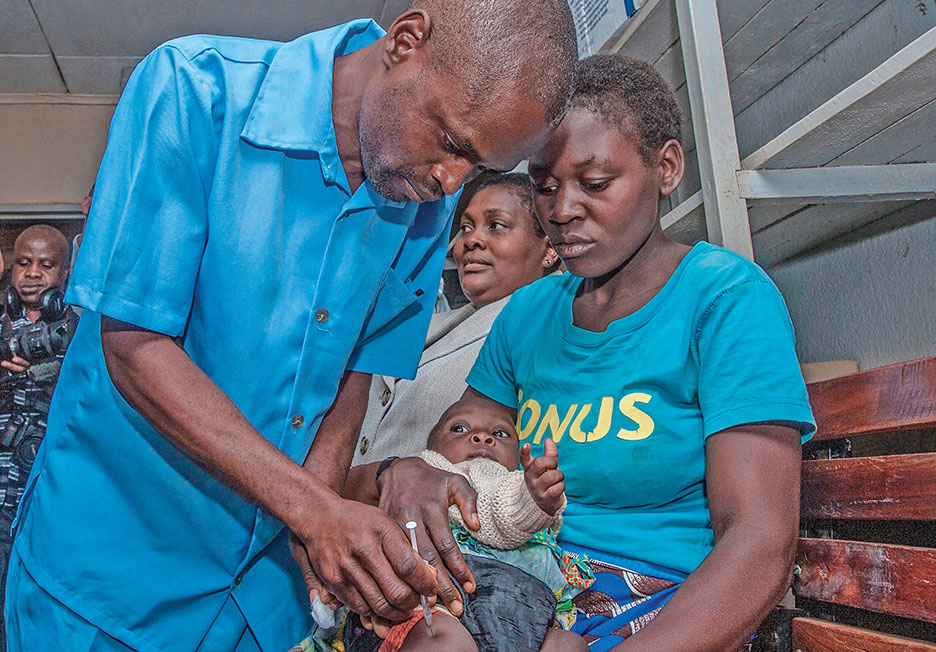AGENCE FRANCE-PRESSE
Malawi has launched the world’s first malaria vaccine in a program to prevent a disease that kills hundreds of thousands across Africa and around the world each year.
Mosquirix was rolled out in the capital, Lilongwe, in April 2019. It was extended to Ghana and Kenya weeks later. The program aims to immunize 360,000 children ages 2 and under in the three countries to assess effectiveness and whether the delivery process is feasible.
Four successive doses must be administered on a strict timetable to be successful, and the children must continue to use other preventive measures such as sleeping under a mosquito net.
The vaccine could prevent 1 million of Malawi’s 6 million annual malaria cases, which would help avoid 4,000 deaths. “This vaccine is a huge plus to Malawi,” said Michael Kayange, deputy director in Malawi’s Health Ministry.
Mosquirix passed previous scientific testing — including five years of clinical trials on 15,000 people in seven countries — and was approved for the pilot program in 2015. Trials reduced malaria by 40 percent.
The vaccine will not give full protection against the disease but is the furthest along in development and so far the most effective. Scientists say if it was rolled out on a large scale, it could save hundreds of thousands of lives.
The World Health Organization (WHO) believes that the new vaccine adds a key tool to mosquito nets, insecticides and drugs in the battle against the disease.
“We have seen tremendous gains from bed nets and other measures to control malaria in the last 15 years, but progress has stalled and even reversed in some areas,” WHO Director-General Tedros Adhanom Ghebreyesus said. “We need new solutions to get the malaria response back on track, and this vaccine gives us a promising tool to get there.”
Malawi, Ghana and Kenya were selected for the trial because their malaria rates are high, and they have a long history of using bed nets and other preventive measures.

